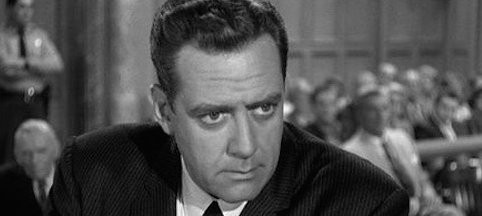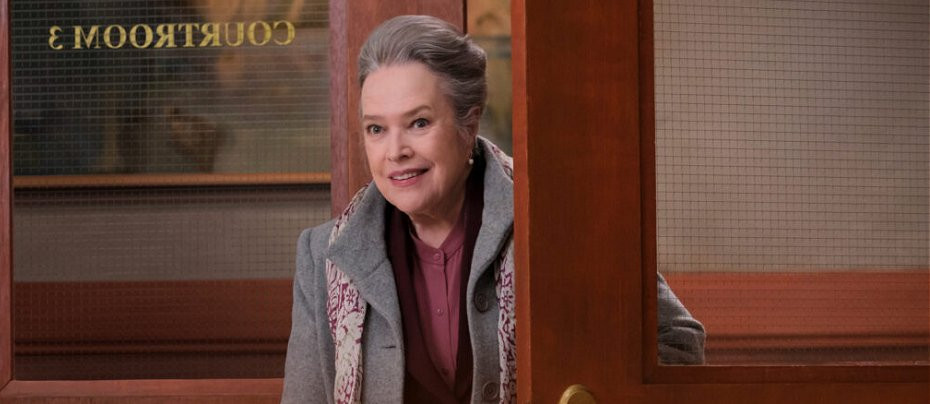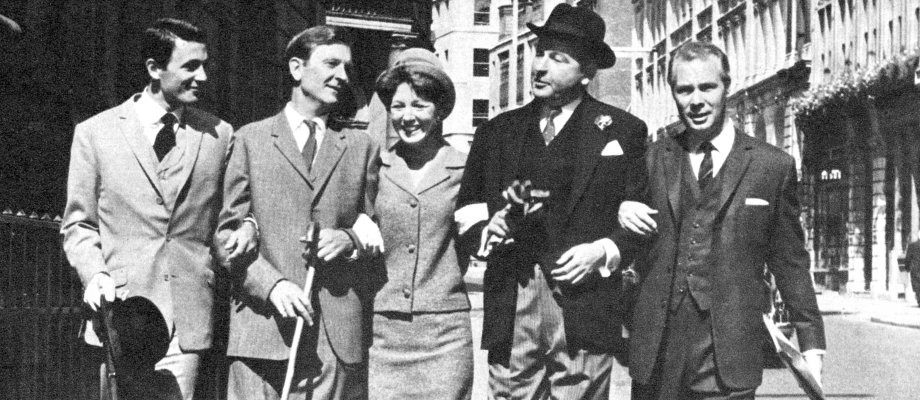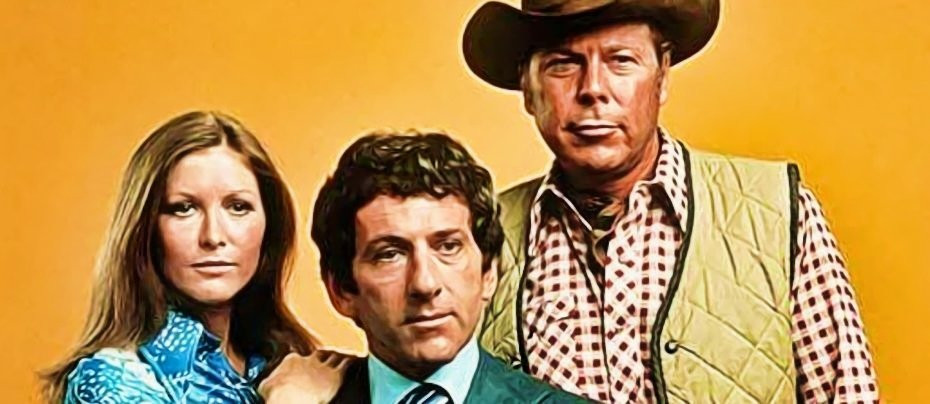
Petrocelli
1974 - United States‘As popular as the programme seemed to be, Petrocelli was comparatively short-lived’
Series review by Brian Slade
There are two things in this ever-changing world that you could always be pretty safe to rely on – the sale at SCS will never end, and Petrocelli will never finish his house. The fictional lawyer was introduced in a film simply titled The Lawyer, Petrocelli being a fledgling legal man who turned his back on Manhattan’s courtrooms for a quieter legal career in San Remo, Arizona. For the surprisingly short run of two seasons, he lived in his trailer with his wife while trying to prove the innocence of seemingly done for clients in 44 episodes of clever drama at a time when American police shows were at their peak.
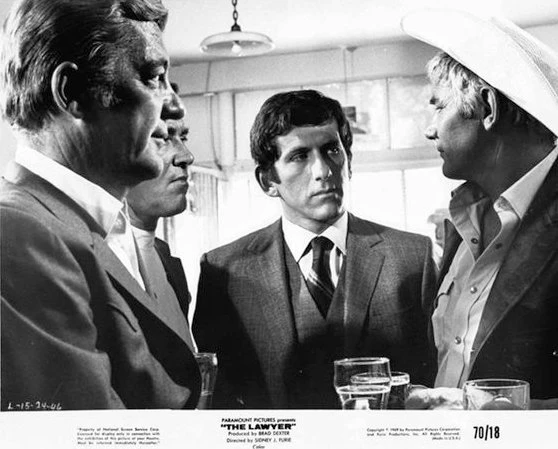
In The Lawyer in 1970, little known Broadway actor Barry Newman had played Tony Petrocelli, a lawyer tasked with a career-defining case defending a physician accused of the brutal murder of his wife who had been burning the candle at both ends, living the social highlife and carrying on with a playboy behind her husband’s back. As would become a regular feature in the television show, the case was not quite the open and shut kind that the bare facts suggest. The movie was relatively well received, primarily because of it being based on a real-life murder case that had descended into somewhat of a soap-opera.
In 1974 executives decided to revive Petrocelli into his own TV series, kicked off by a feature length TV movie, Night Games. The context was still the same, although this time the genders in the case were reversed. Night Games was a precursor to the television series that followed.
The opening credits show Tony and Maggie Petrocelli leaving Manhattan in Tony’s beaten up blue and white pick-up truck heading for the desert, with sandy cactus-laden landscapes replacing glistening skyscrapers. Much of what follows in Petrocelli follows the same ‘rebelling against the norm’ theme.
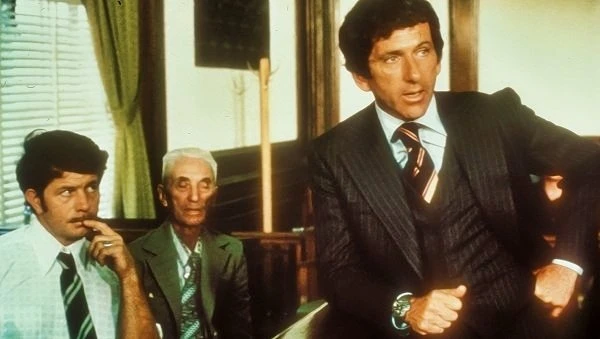
Each week, amidst his bread-and-butter cases of defending small time drunks and processing divorce papers, Tony gets a case that nobody else wants or thinks has a chance of being successfully defended. The cases are inevitably ones that seem clearcut, but with his discomforting and confrontational style, Petrocelli manages to sow the seeds of doubt into the judges, jurors and authorities to the point where his grateful clients are given the freedom they had seemed destined to lose.
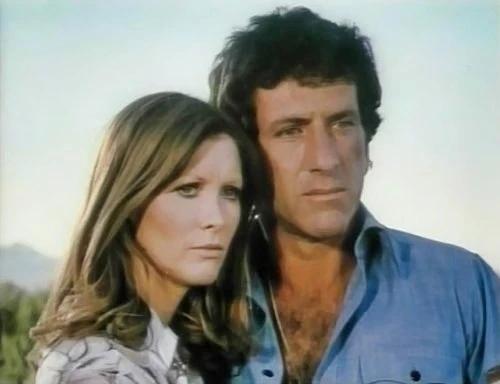
Alongside Tony is his wife Maggie, played by Susan Howard whose face would become even more well known a few years after the demise of Petrocelli as Donna Culver, wife of Ray Krebbs, in Dallas. The relationship between Maggie and Tony is one of absolute devotion. They are both committed to their new life in the wilderness, seemingly totally in love and without any marital angst. It’s a believable relationship that counteracts the dryer legal side of the episodes, with Maggie’s strong but likeable character neatly balancing out the gruffness of Tony.
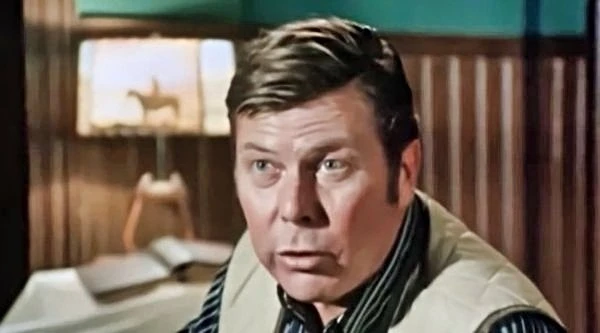
The format of the show was consistent. We would be shown a flashback to the crime that showed Petrocelli’s client committing the alleged offence, demonstrating the seemingly doomed position they were in. Petrocelli himself would ruffle feathers, aided and abetted by investigator chum Pete Ritter (Albert Salmi), as he sought to defend the seemingly indefensible. Inevitably he would find something that disgruntled local authorities and district attorneys would not. What followed would be one or more flashback sequences seen from an alternative vantage, showing how his new evidence and theories provided an entirely different interpretation of events. The reasonable doubt he was able to cast would clear his clients.
Petrocelli as a character was a rough and ready type. He was not beyond stretching the law himself, driving like a bat out of hell between Manhattan and his San Remo building site/caravan, invariably covering parking meters rather than pay to park his trusty pick-up. His antics and that of Pete were questionable in his quest for justice, but his intentions were always good, perhaps reflected in the fact that he always seemed to be without any real wealth despite the trail of successes he had.
As popular as the programme seemed to be, Petrocelli was comparatively short-lived. Its first season ratings were sufficient to get a second season run, but viewing figures began to tail off in that second season. Writers suddenly started trying to mimic action-packed detective shows of the time like Starsky and Hutch, with Petrocelli himself given more physical involvement in the later storylines than the legal machinations. It was a change that failed to halt the slide and it was axed even before the final episodes had been shown, several of which only surfaced on repeat runs.
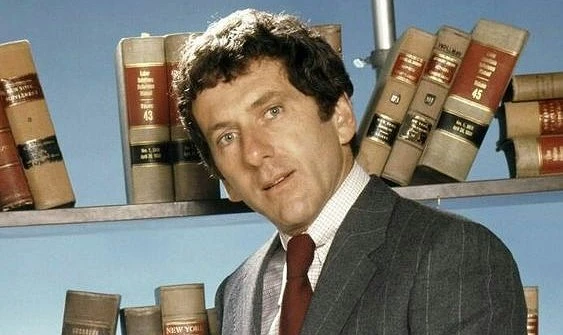
In the UK, the BBC only picked up Petrocelli after it had met its end in the US. The Night Games tv movie aired in 1978, two years after the programme’s cancellation, followed by a Friday night 9.25pm slot for the two series. The BBC’s belated arrival to the party, along with a somewhat scattergun approach to the order in which they aired the episodes, could be argued to have helped in its popularity as they ran both series and repeat showings almost without interruption over an 18-month period. The yoyo nature of progress on Petrocelli’s building became somewhat of a national phenomenon thanks in no small part to Terry Wogan pouncing on the lack of progress of the new home, the popular DJ appealing for help to fund the completion of the Petrocelli home.
For a show that was axed before even a second season had been completed, Petrocelli is remembered very fondly. Newman and Howard were an immensely likeable couple and the ‘escape the rat race’ element, while ahead of its time, seemed to strike a chord with many viewers. If the writers were guilty of one thing it was perhaps the over devotion to the admittedly successful formula. By the time they ditched the ‘here’s how it could have happened’ approach, Petrocelli had lost its viewership, but it remains a very well thought of export and one of the best examples of its kind of that era.
Seen this show? How do you rate it?
Seen this show? How do you rate it?
Published on September 20th, 2022. Written by Brian Slade for Television Heaven.



